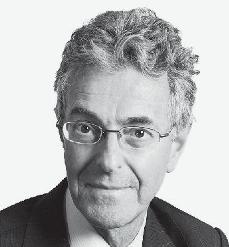Summer in the city: Is the UK prepared for the risks from a changing climate?
Release Date 11 July 2013

UK cities need to adapt to cope with lethally hot periods of summer weather, according to climate researchers meeting in London today.
While the UK enjoys an extended period of warm weather, policymakers from UK government, businesses such as Sainsbury's and Pepsico, and climate researchers will gather in London today to discuss the many risks to the UK from a changing climate.
Lord (John) Krebs of Wytham, adaptation leader for the Committee on Climate Change, will be the keynote speaker at the University of Reading's Walker Institute Annual Lecture, on the changing risks in the UK from weather and climate.
While it is known that these risks are changing, the event will seek to ask: how can the UK best prepare for these changes and could there be opportunities that might benefit Britain?
Among several examples that will be discussed is the risk of flooding to our homes, businesses, power stations and transport networks, which is set to increase through the 21st century.
Urban areas are also at risk of warming much faster than elsewhere, making city living increasingly uncomfortable during warm spells and even threatening the health of the young and old. Last month's World Meteorological Organization (WMO) report showed a twenty-fold increase in the global death toll from heat waves between the 1990s and the decade 2001-2010, with 136,000 people dying during the decade as a result of extreme heat.
Climate change could also open up new opportunities. Farmers' harvests could improve under warmer temperatures and a longer growing season, as long as crops have enough water, and the UK fishing industry might benefit from migration of new species into UK waters.
Lord Krebs will consider how well climate risks are understood and managed, what still needs to be done and how government, business and communities all have a role to play.
Climate researchers will be keen to discuss how the latest predictions of climate can help to advise business and policymakers on the risks. This kind of collaboration is key to developing climate adaptation services which could become an emerging market to help the UK economy grow. A greater focus on adaptation in the UK could stimulate enterprise in a global market for adaptation goods and services.
Kathy Maskell from the Walker Institute for Climate System Research said: "Making the UK less vulnerable to weather and climate isn't a simple matter. Yes, we are seeing a long term warming trend and heavier rainfall, but natural variability means that our weather and climate will continue to vary a lot from year to year. The unusual weather in the UK over recent years, including unusually cool and wet summers and cold winters, shows that adaptation isn't a simple matter of preparing for a Mediterranean climate.
"Research at the University of Reading's Walker Institute is helping to understand how climate risks are changing in the UK, and across the world, and what this means for us all. Our annual lecture provides a wonderful opportunity to engage with business and government and such collaboration is key to helping the country adapt to what lies ahead."
Notes to editors:
Event details: Walker Institute Annual Lecture 2013, Thursday 11 July, at 5pm
Is the UK prepared for the risks from a changing climate?
Professor Lord Krebs of Wytham Kt FRS, Committee on Climate Change
Venue: 30 Euston Square, Royal College of General Practitioners, Euston, London, NW1 2FB
Please RSVP to Kathy Maskell k.maskell@reading.ac.uk 0118 378 7380
http://www.walker-institute.ac.uk/events/annuallecture13.html
Follow key developments in the debate on Twitter @UniRdg_WalkerIn and hash tag: #UKclimate
2. The University of Reading's Walker Institute for Climate System Research carries out world-leading multidisciplinary climate research to understand and improve predictions of climate and its impacts. The Institute's areas of expertise include climate processes and modelling, water resources and quality, biodiversity, agriculture, soils, livelihoods, socio-economics and the urban environment.
